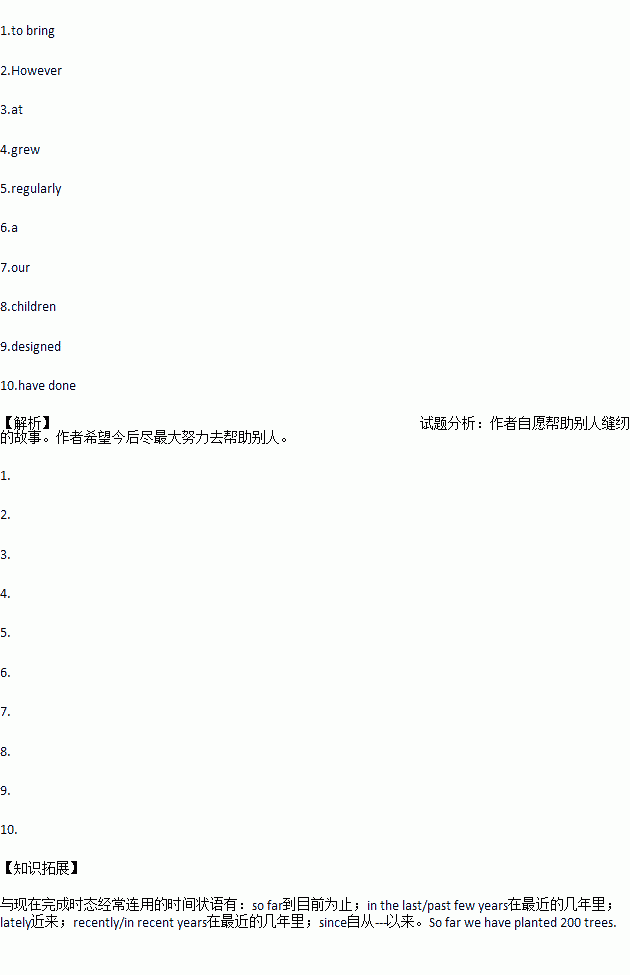题目内容
I was raised in New York City where it’s very cold every winter. In the sixth grade, a teacher offered 1.(bring) some students to a homeless shelter after school. I went with my friends and the teacher for several weeks.2., I continued to volunteer to help when they stopped going together. Because I was good 3.sewing, I was told to help out with the sewing kit when any guests needed some repairs. Throughout high school I continued to come each week after school, setting up my sewing kit which4.(grow) larger and larger. I got to know the guests who came 5.(regular).
Later on, I started 6.sewing club with my friend and we taught 7.(we) fellow students how to sew. We made heart-shaped pillows for sick 8.(child) and the elderly. Every time it rained I would think about the umbrellas 9.(design) before. In the future I hope to continue helping others as much as I can. It is the most important thing I10.(do) ever since.

